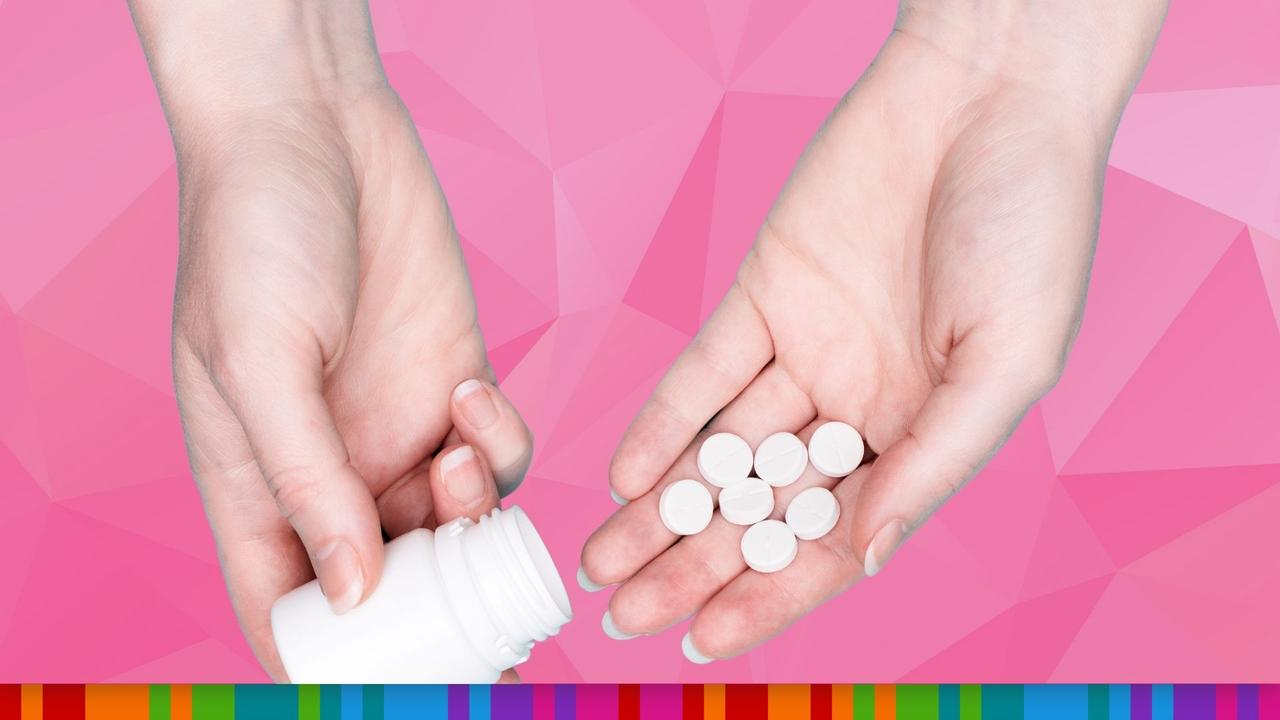It’s time to destigmatise meds for mental health
I’ve needed medication to treat depression and anxiety for over half of my life. This is why it took so long for me to tell anyone.
I have been on medication to treat depression and anxiety for over half my life. Citalopram, Venlafaxine, and now Sertraline.
I started taking medication when I was 18 and didn’t tell anyone until I was 27. I used to feel so ashamed about needing to be on meds to help cope with my mental distress.
Mental health and suicide are not easy subjects to talk about, but news.com.au wants you to know you’re Not Alone. News.com.au’s Not Alone will raise awareness about these issues and provide you with the resources needed to reach out for help.
It felt like medication was a failure on my part. Like I was incapable of figuring it out on my own, when all I wanted was the strength to do just that.
Even when I started becoming more open about it, I still felt embarrassed about having to insist that I needed medication to feel normal.
When I started my first job out of university, I was wracked with anxiety about having to tell my employer about my condition. In the end I didn’t need to thanks to a well-informed decision to start a medication that was very beneficial for my condition, so I was able to perform at the same level as everyone else.
I still remember someone saying to me when I told them I was on antidepressants, “You don’t seem depressed! You hide it so well.”
Well, yeah, that’s because I’m on antidepressants.

Needing to be on meds does not invalidate the sheer willpower I require to keep fighting — that is all ME. I pick myself up when I fall, I take responsibility for my healing and recovery, and I own my condition.
Since opening up about my medication, I’ve discovered that while there’s still a stigma around needing medication for mental health, there’s also all the love and support people share. Most of all, there’s the pride and hope I feel when I’m able to help others just by being myself.
Medication is just the lubricant that helps my brain produce the chemicals that are found in a healthy brain. It helps to turn the volume down on a lot of irrational thoughts and feelings of worthlessness. Medication allowed me to take back control of my life, and ultimately saved it.
Using medication to treat clinical depression, anxiety, bipolar disorder, or any other mental health issue is no less valid than using medication to treat a heart condition, chronic migraines, or anything else.
If somebody was diabetic, would we deny them of insulin? If somebody had a headache would we deny them of pain killers?
No, we wouldn’t. So why then when somebody’s brain doesn’t produce serotonin are we so quick to judge them for taking medication?
This is by no means about glamorising mental illness or medication. We all function differently, and therefore manage our symptoms in different ways. Find what works for you, but just know that if it does take medication to get you back on an even keel — it’s NOT a failure on your part. It’s an incredibly strong and brave thing to seek help, and to keep taking that step day after day.
I am no longer ashamed about taking medication. There’s no reason to be. If someone doesn’t like the fact that I do, that’s on them not me.
It’s okay to need help.
It’s okay to take medication.
It’s okay to not be okay.
It’s okay to be you.
A week ago, I saw a friend of mine share their story on LinkedIn in support of the #postyourpill movement (started by influencer and Ambassador for Mental Health, Dr Alex George), I knew this was a conversation that needed to continue beyond the time frame of a passing trend.
This was more than a trend to me, and I wanted people to know that it didn’t define me.
Since then I’ve received dozens of messages from people all over the world who resonated with my story and told me they wished they could find the courage to be so open. While yes, some responses were ignorant and made it obvious why so many people still feel alone and misunderstood around this issue, overwhelmingly it seems to have hit such a chord with people — which makes it all worth it.
If this pandemic has taught us anything, it’s that compassion for ourselves and one another is paramount to our ability to cope in the face of adversity.
With so many already struggling with the effects of loss, grief and isolation, we simply need to be kinder to one another.

The crippling stigma attached to mental health and medication is preventing many from accessing the care and support they need for fear of being discriminated against and judged by others who don’t understand what they’re going through.
It’s time we changed our attitude towards mental health and the use of medication to improve it. Let’s make it as normal to talk about mental health as physical health, and let’s treat it with the same care and attention, even if it’s not visible. Only then will we know how to better support each other; only then will people feel okay to not be okay.
For anyone who feels unable to be vulnerable and speak out, I want you to know that by opening up you’re unknowingly paving the way for others who are still waiting to find their voice. You are giving someone the hope they may need.
And for anyone who wants to be part of the conversation, I take my hat off to you. Because I know what it takes to support someone whose distress you can’t see or even comprehend.
As someone who has personally experienced the pain and anguish of depression and anxiety; my journey is a testimony to the fact that you are not alone. You are loved and cared for even when it doesn’t feel like it. And you are worthy of recovery towards a brighter future. Don’t let anyone deny you of that basic human right.



